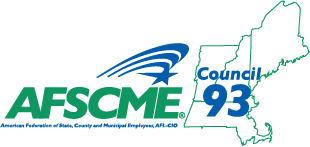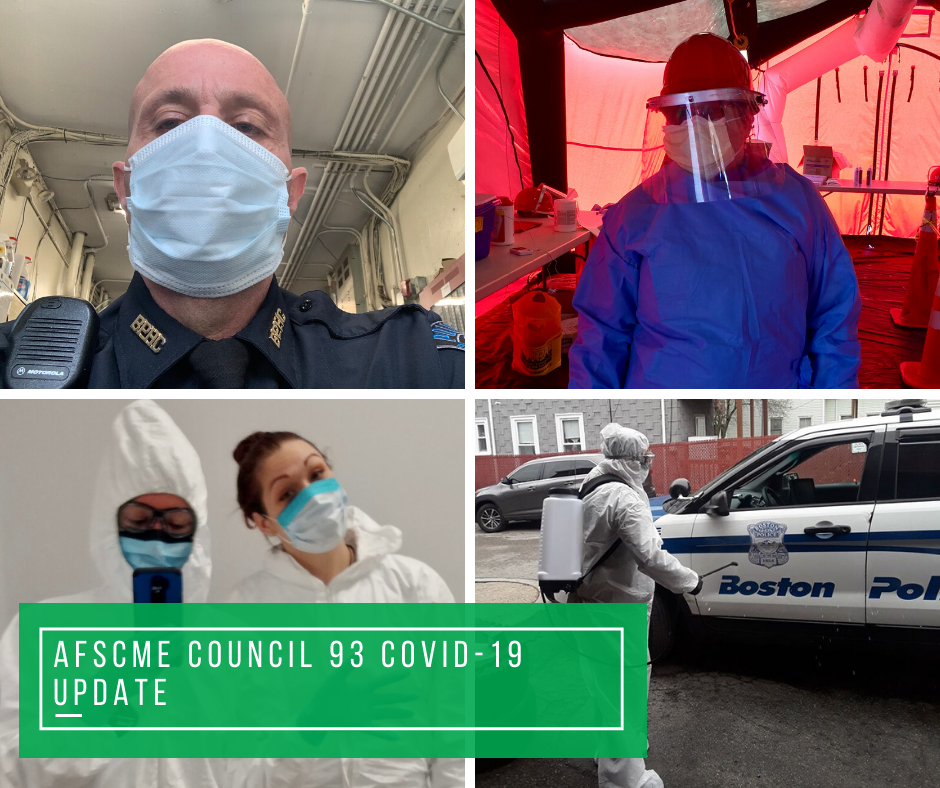AFSCME members at working at mental health and public health hospitals in Tewksbury Massachusetts will soon be receiving badly-needed assistance from the United States Army Medical Corp, and according to AFSCME workers on the front lines, the aid can't come soon enough.
Local 700 member Salmira Mitchell says that she and her fellow direct care workers at the mental health facility in Tewksbury are struggling to get through every day and night as COVID infections among staff and patients continues to rise.
Mitchell, a seven-year veteran of the hospital, says that staff shortages resulting from infections has forced caregivers to cope with higher patient to staff ratios; ration and sanitize their own personal protection equipment; and deal with increased assaults on staff from "frightened and confused" patients in their care. Mitchell said that increased overtime mandates resulting from the staff shortage are also exhausting the already tired staff.
Yet, Mitchell says that she and her colleagues continue to persevere. "Everyone, patients and staff, are under a high level of stress," Mitchell said, "It's been tough, but we are hanging in there. Everyone is working hard and doing the best we can with what we have to work with."
Council 93 represents workers at both the mental health and public health facilities on the sprawling state campus in Tewksbury. In an email to staff this week, state officials said that 77 patients and 76 staff members at the Tewksbury facilities had tested positive for the COVID-19 virus as of April 18th.
However, the email to staff also indicated that assistance was on the way in the form of an Army Medical Corp. team based in Texas. The email stated that the commonwealth had received word on April 17th that the team had arrived at the hospital this past weekend "to begin orienting themselves." The email further stated that the army team consists of "physicians, RNs, LPNs, medics, social workers, rehab staff, and some mental health clinicians" and the team will be "integrating into patient care units in the next couple of days."
"The situation is difficult and dangerous at virtually all of our human services facilities but things have become particularly hard in Tewksbury over the past few weeks," said Council 93 Executive Director Mark Bernard. "The assistance from the army is both welcome and appropriate. Make no mistake about it, we are fighting a new type of war and our AFSCME soldiers on the front lines need this help."
Local 700 member and direct care worker Melissa Rusler, who has been at the hospital for almost five years, said any help will be welcomed as COVID-19 infections continue to rise. "We have 34 COVID patients on one unit. That's just too many," Rusler said. "A typical unit would have about 30 patients, but that's a health unit without any infectious diseases present. That's too many infected patients in a small place. When it first started we could separate infected patients when they were eating or watching tv. That's not possible anymore."
Like Mitchell, Rusler said the mandating of overtime shifts on COVID units is also a problem. "The recommendation is to limit exposure to the virus to eight hours but now people are having to work for 16 straight hours in a COVID unit. People are tired but they're mostly scared right now," she said.
Local 700 President Felix Martinez expressed pride for the dedication of his members and promised to continue working to make them as safe as possible. "We are doing everything we can to support them, and we are receiving great support from Council 93, Martinez said. "I'm talking to several members every hour. We are all doing our best to respond and react as soon as we can."
Local 842 President Frank Minton, whose local represents workers at the public health facility, also praised his members and the union. "We're all struggling with the same issues but we're working with Council 93 to do everything we can for our members and they deserve nothing less," Minton said. "Everyone is working at 120%. No one is taking time off. Our housekeepers, LPNs, nursing assistants, our respiratory and recreation therapists, our campus police officers and dispatchers – everyone is knocking it out of the park."

